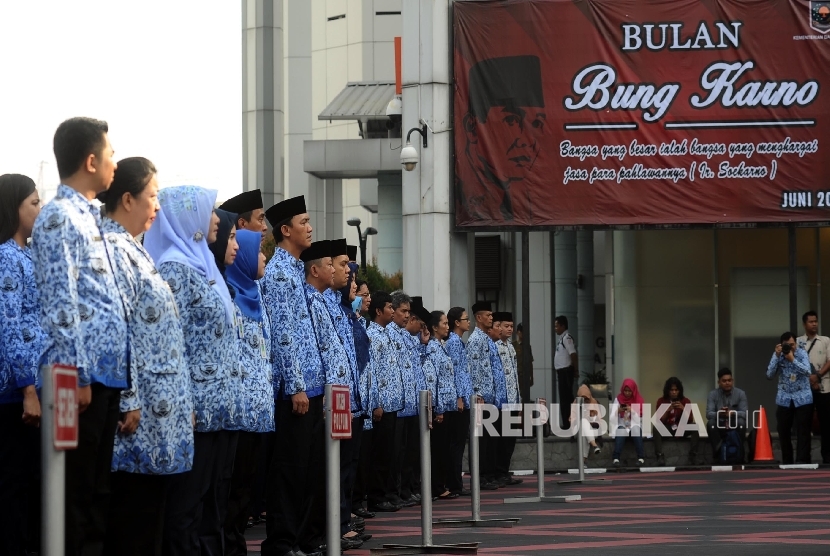REPUBLIKA.CO.ID, JAKARTA -- A reduction in the number of civil service staff was needed to reorganize the structure and human resources in government agencies, according to an expert.
"The efforts are intended to improve the efficiency of government spending. There are several forms of spending with regard to civil servants," Eko Prasojo, an expert on administration, stated here on Thursday.
Prasojo, who is also a member of the Independent Team of Bureaucratic Reform, noted that the team had delivered a draft regulation on downsizing government workforce, which will serve as a guide in reducing the number of civil servants.
Meanwhile, Deputy Speaker of the House of Representatives Agus Hermanto expressed disagreement to the government's decision to reduce the number of civil servants.
"The plan should not be implemented hastily. There should be some form of consideration as public servants are an asset and a source of development," Hermanto pointed out here on Thursday.
The deputy speaker remarked that the government should recruit employees based on the requirement.
Earlier, the Indonesian government had planned to reduce the number of civil servants gradually and efficiently, President Joko Widodo stated here on Tuesday.
"It means if 120 thousand retire in a year, then within the next five years, we will only recruit 60 thousand employees. So, the number later will drop significantly," he noted after a government working meeting at the finance ministry building.
The president affirmed that this policy will increase efficiency in expenditures for employees and will improve the quality of the government's hired workforce. He further added that the program could not be completed within a year.
He admitted that no decision had been reached with regard to the implementation of the concept of rationing, as proposed by the Minister of Administrative Reforms Yuddy Chrisnandi.
"I have not yet received the draft and concept of the plan, but it will be like that," he explained.
Minister Yuddy said if the Indonesian government did not control spending on employees, the expenditure will continue to rise.
He also pointed out that the plan was aimed at avoiding state losses resulting from employee payments.
"Hiring one employee will increase the government's workforce and capital spending. The focus is on capital spending," he emphasized.
To develop a program, the Ministry of Administrative Reforms has simulated rationing.
"We are simulating the number of Indonesian civil servants at some 1.5 percent of the population, and with the assistance of technology, it will be sufficient," Yuddy noted.
He further explained that with an Indonesian population of some 250 million, employing 3.5 million civil servants would be adequate.
Currently, the number of civil servants in the country reaches 4.5 million, and Yuddy said his office has suggested reducing and redistributing government employees within three years.


